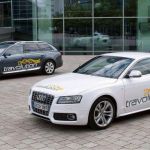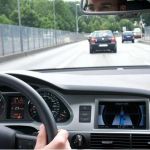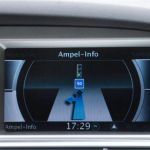New traffic management system enables communication between cars and traffic lights to reduce ‘stop-start’ inefficiency
2008 Audi Travelolution Project
Audi lends its support to ‘Travolution’ project aimed at streamlining urban traffic flow through interaction between cars and traffic lights to minimise fuel-sapping ‘stop-start’ traffic
Travolution software can alert Audi drivers when a light is due to change to green, and calculate the speed that should be maintained in order to pass through in the green phase
System also reduces duration of stops by improving synchronisation and traffic light phasing across the network
Frustrating, fuel-sapping stops at red traffic lights could soon be the exception rather than the rule thanks to a new initiative being championed by Audi aimed at streamlining urban traffic flow and reducing CO2 emissions.
The experimental ‘Travolution’ system, developed with Audi support by traffic management experts in the brand’s German home town of Ingolstadt, will not only improve synchronisation and phasing of traffic light networks to reduce stopping times, but could also dramatically reduce the number of actual stops needed by creating a communications link between cars and the traffic light network.
Communications modules built into each traffic light are able to send messages to cars in the vicinity, alerting them to the time remaining until their next green phase. The car’s onboard system is then able to calculate the speed which the driver must maintain in order to pass through the light during this green phase, and displays this via the Multi Media Interface display.
A network of 46 of the ‘intelligent’ traffic lights has been installed in the centre of Ingolstadt, the software to which they are all linked optimising their phasing to bring stopping times down to a minimum, reducing fuel consumption and pollution in the process.
Of the 46 light gantries, three have been upgraded to enable communication with the specially modified A5 and A6 Avant models provided by Audi as part of the 1.2-million Euro pilot project. A further 20 cars and 50 light installations are to be incorporated as the project evolves.


